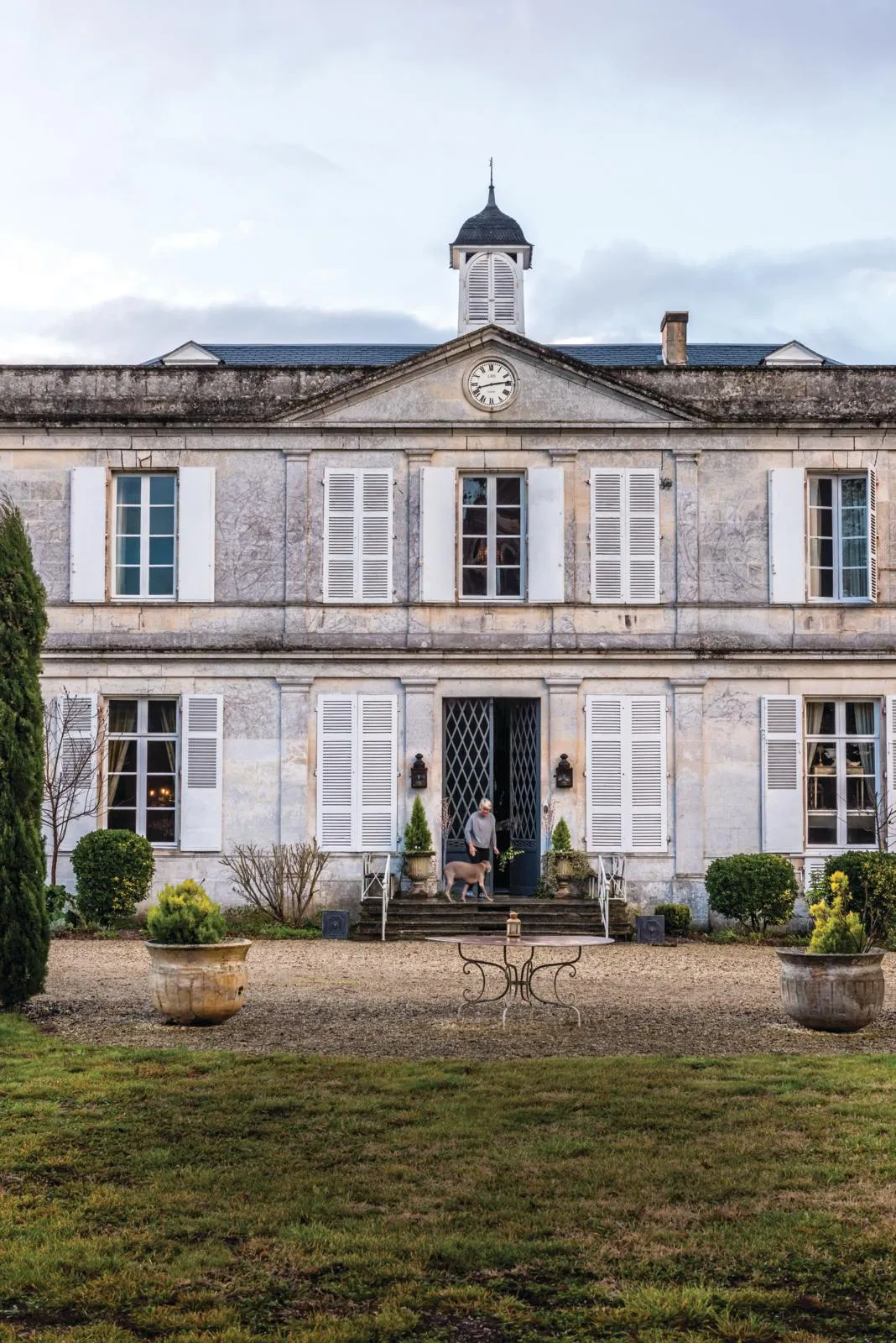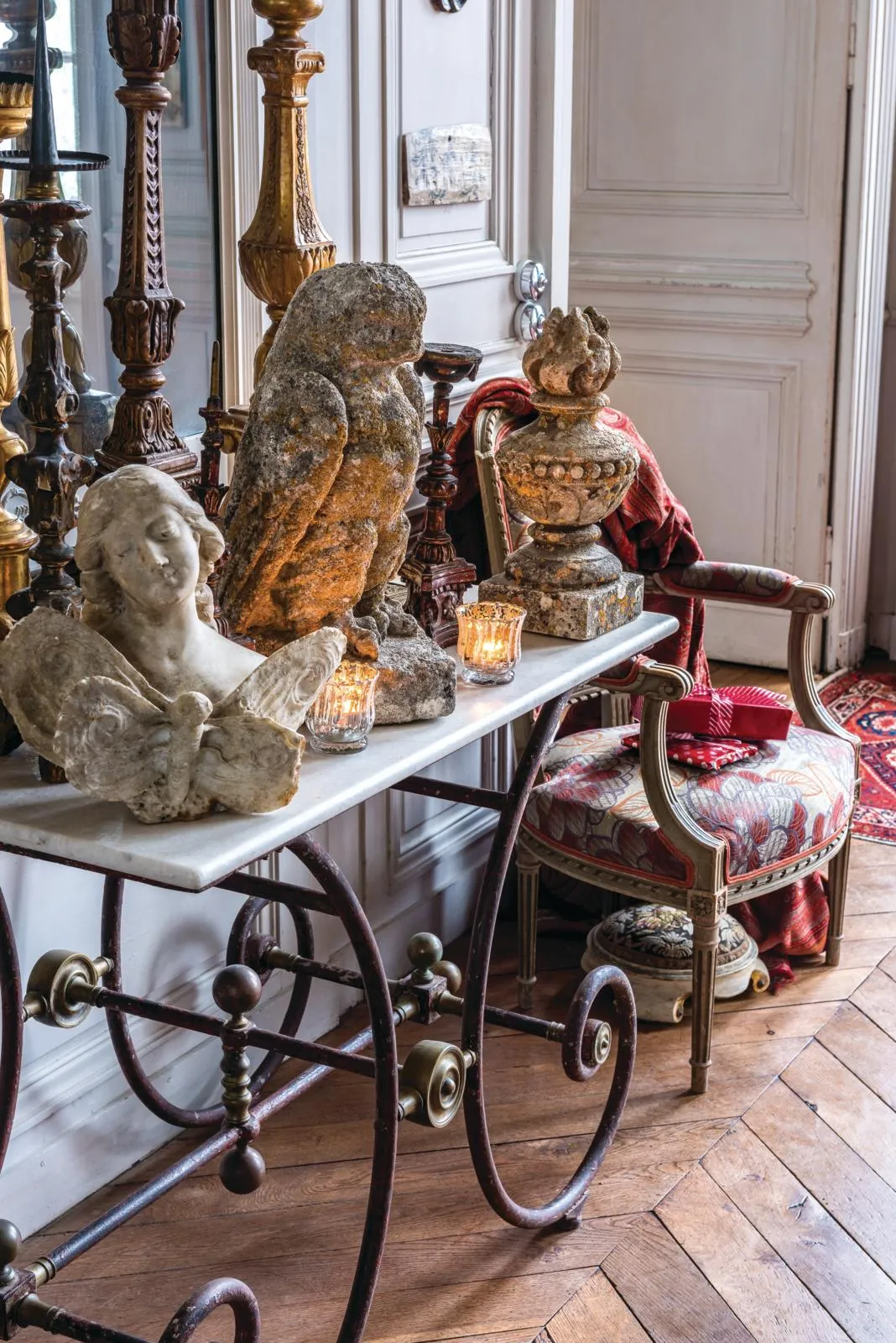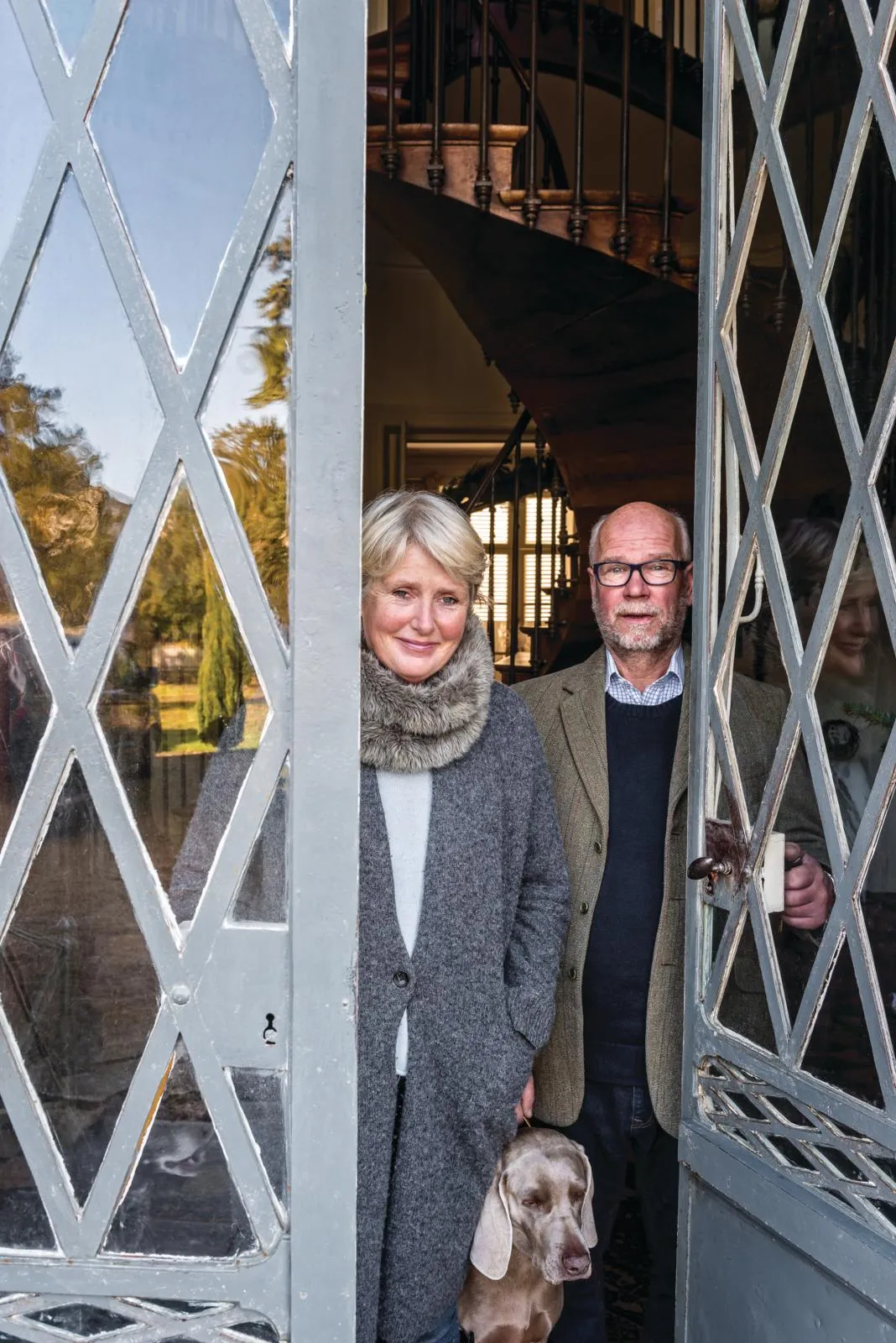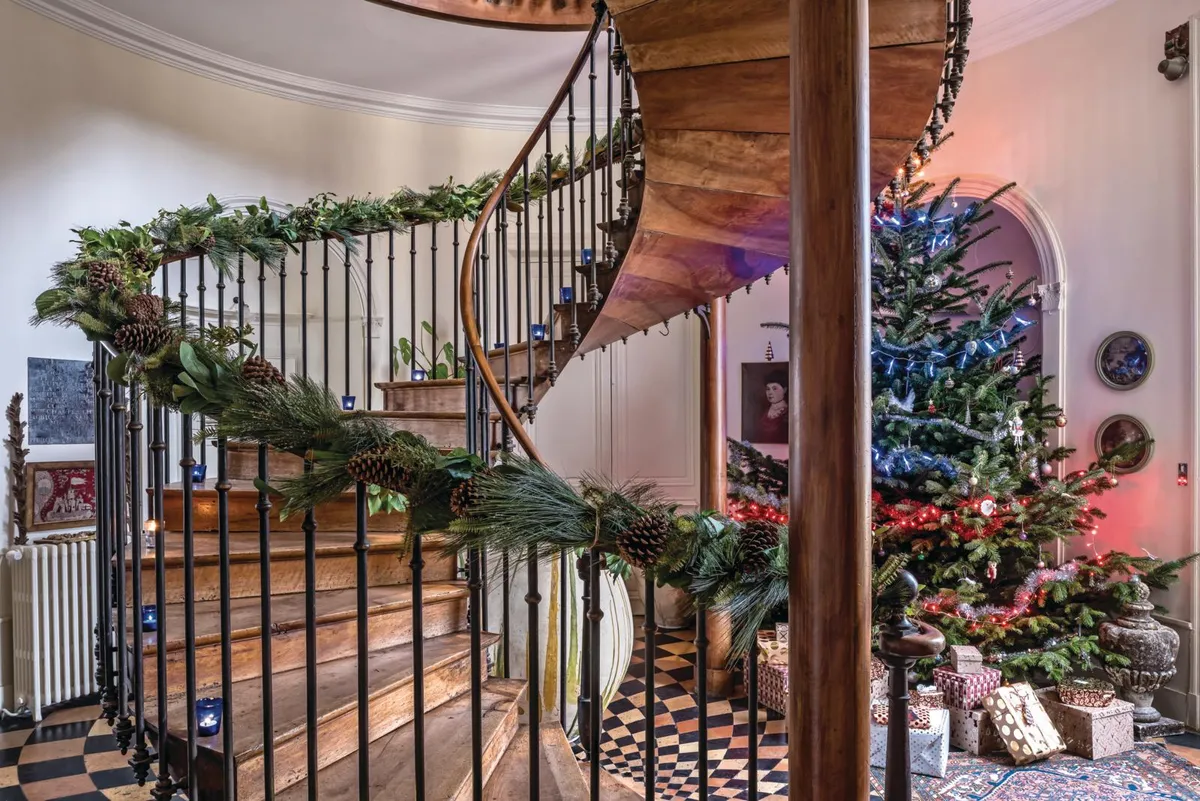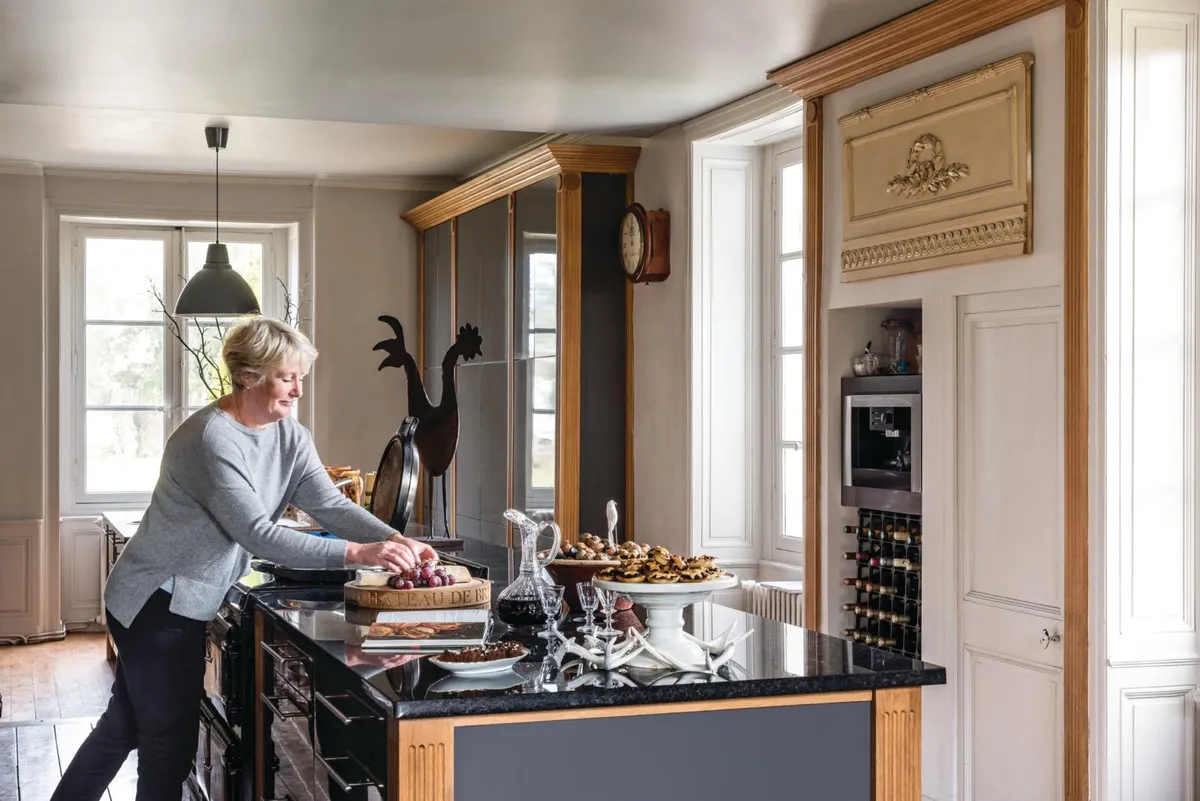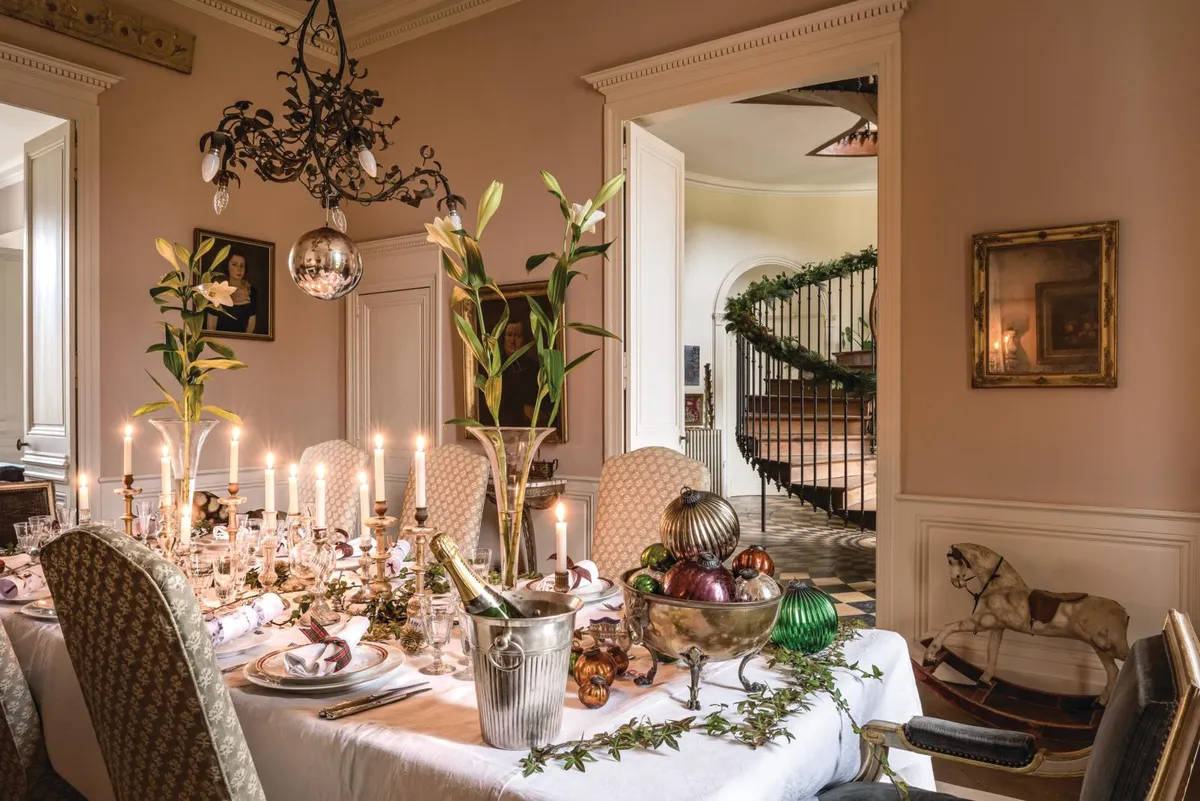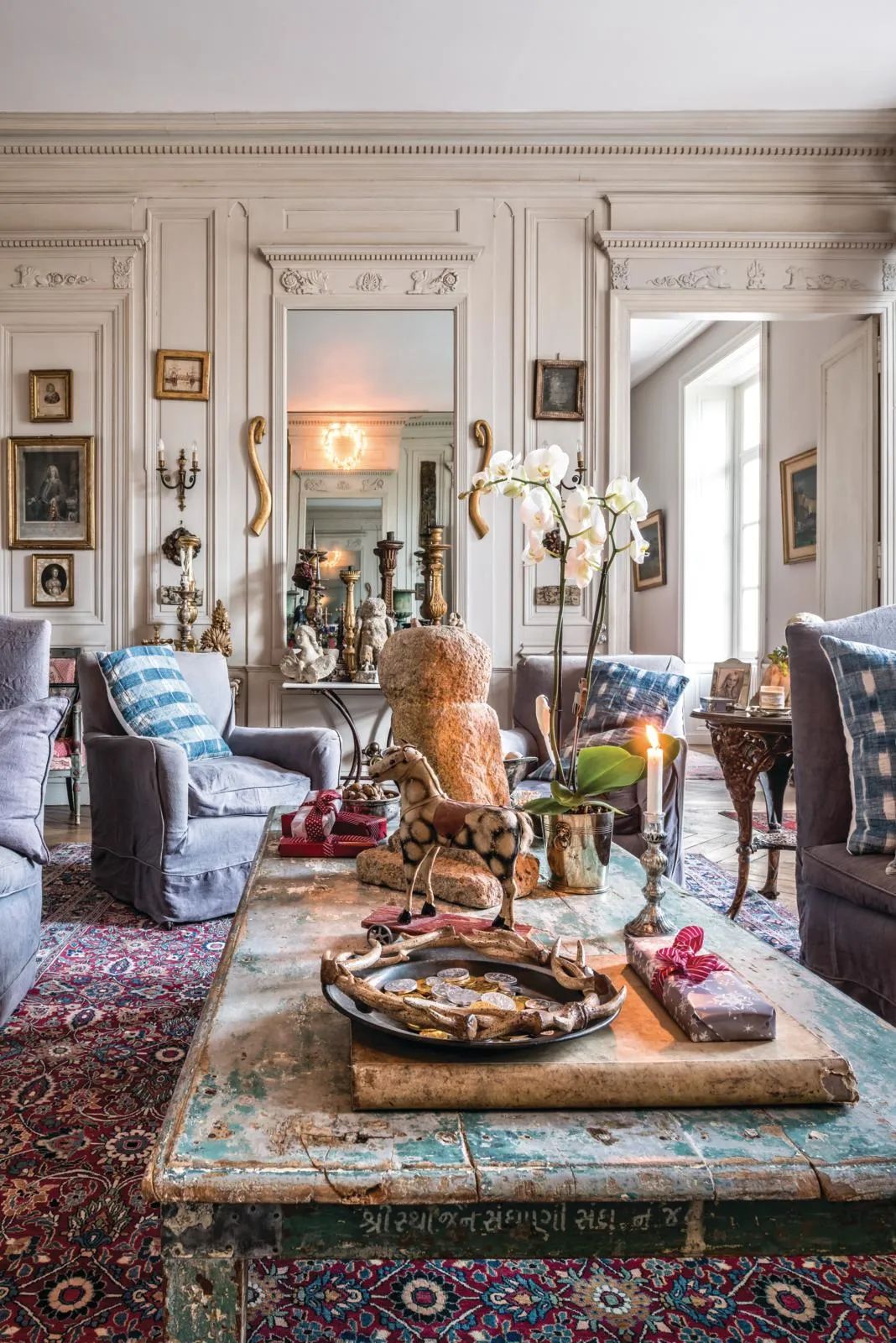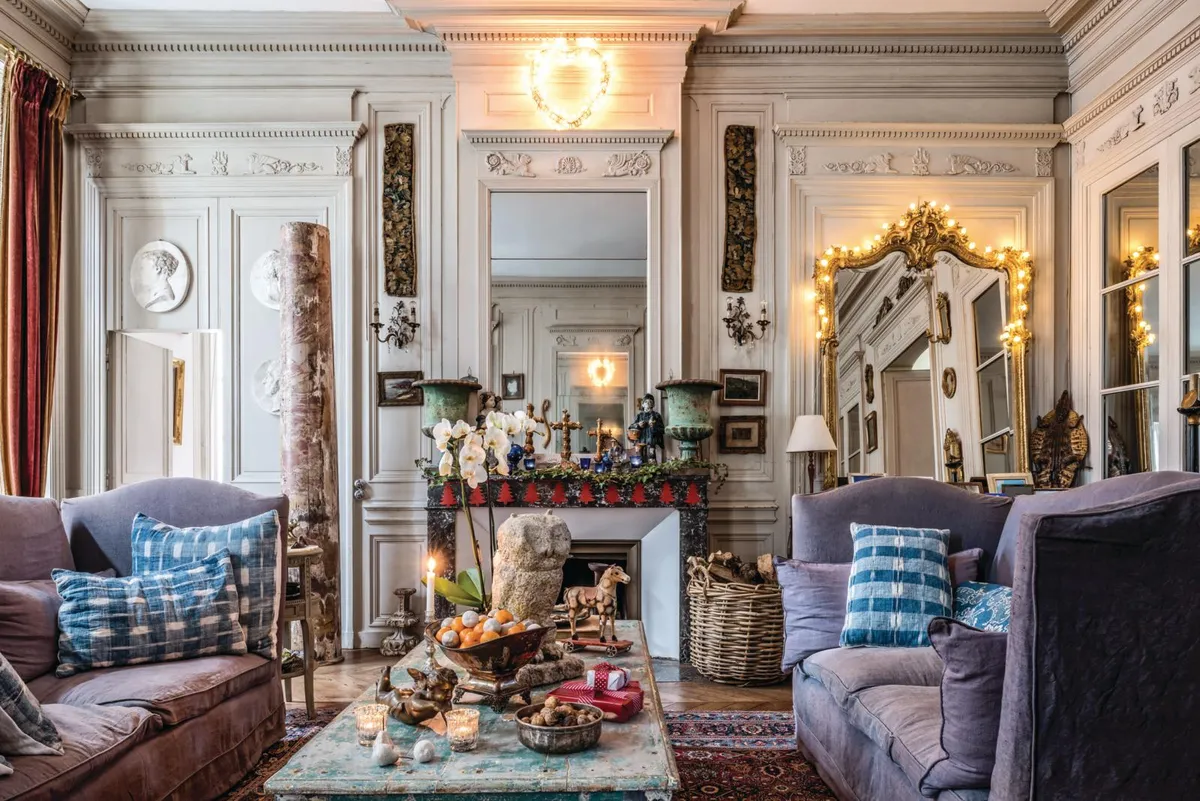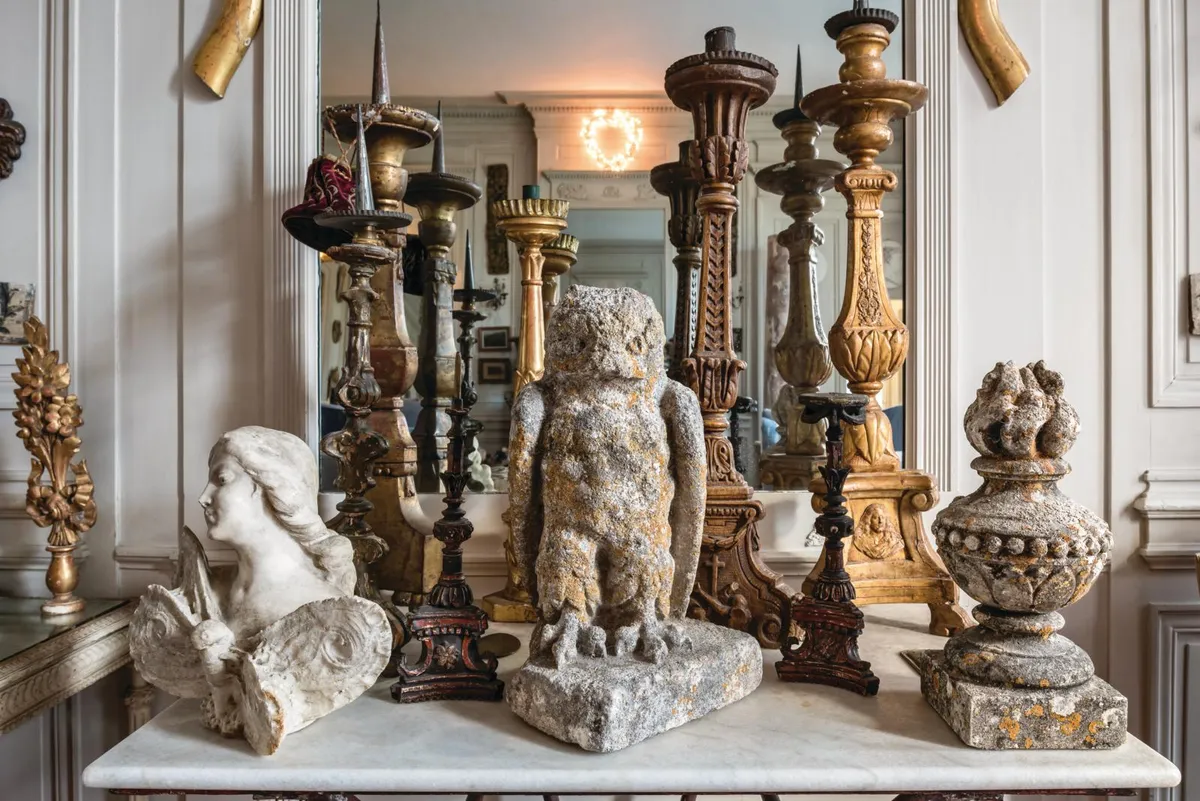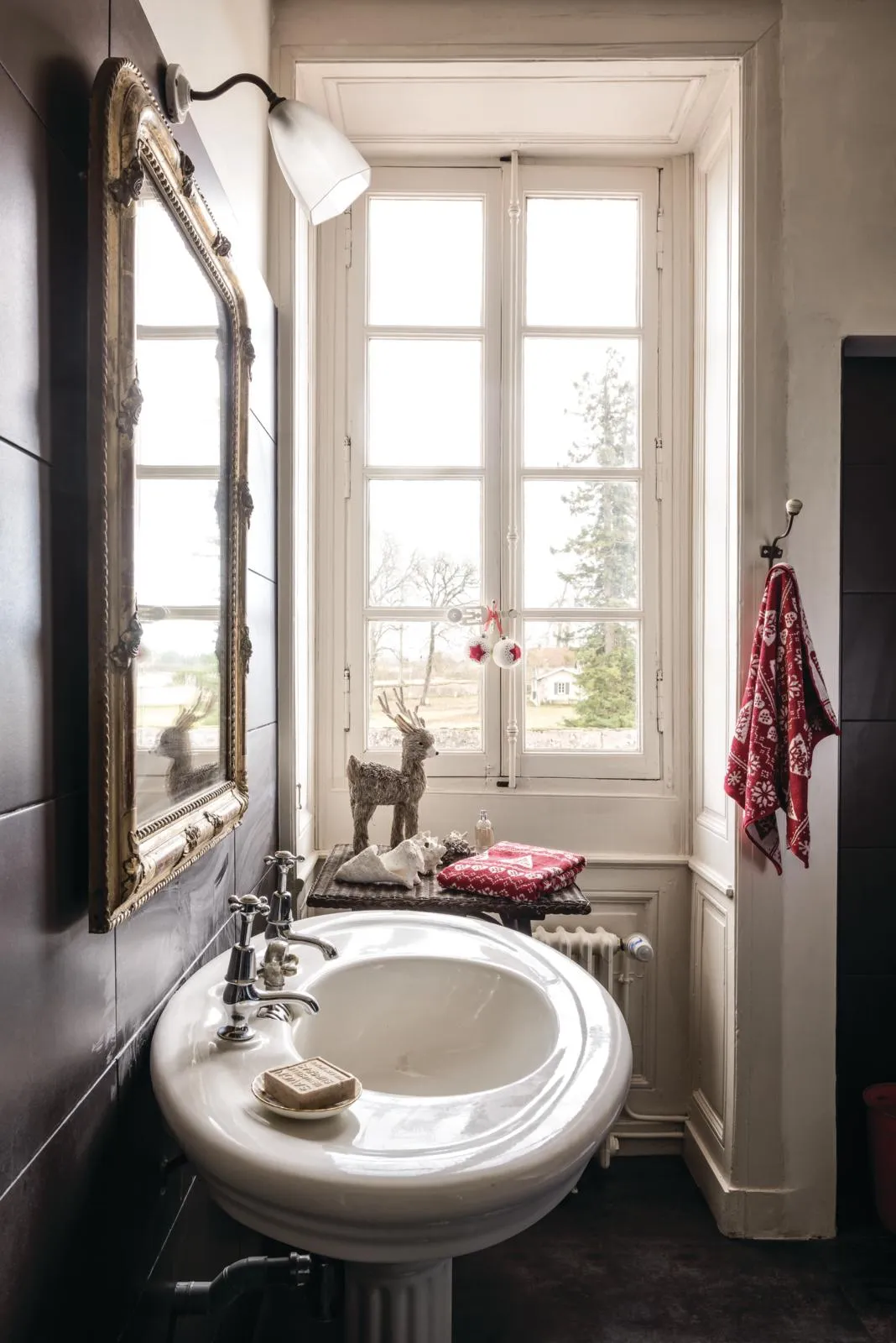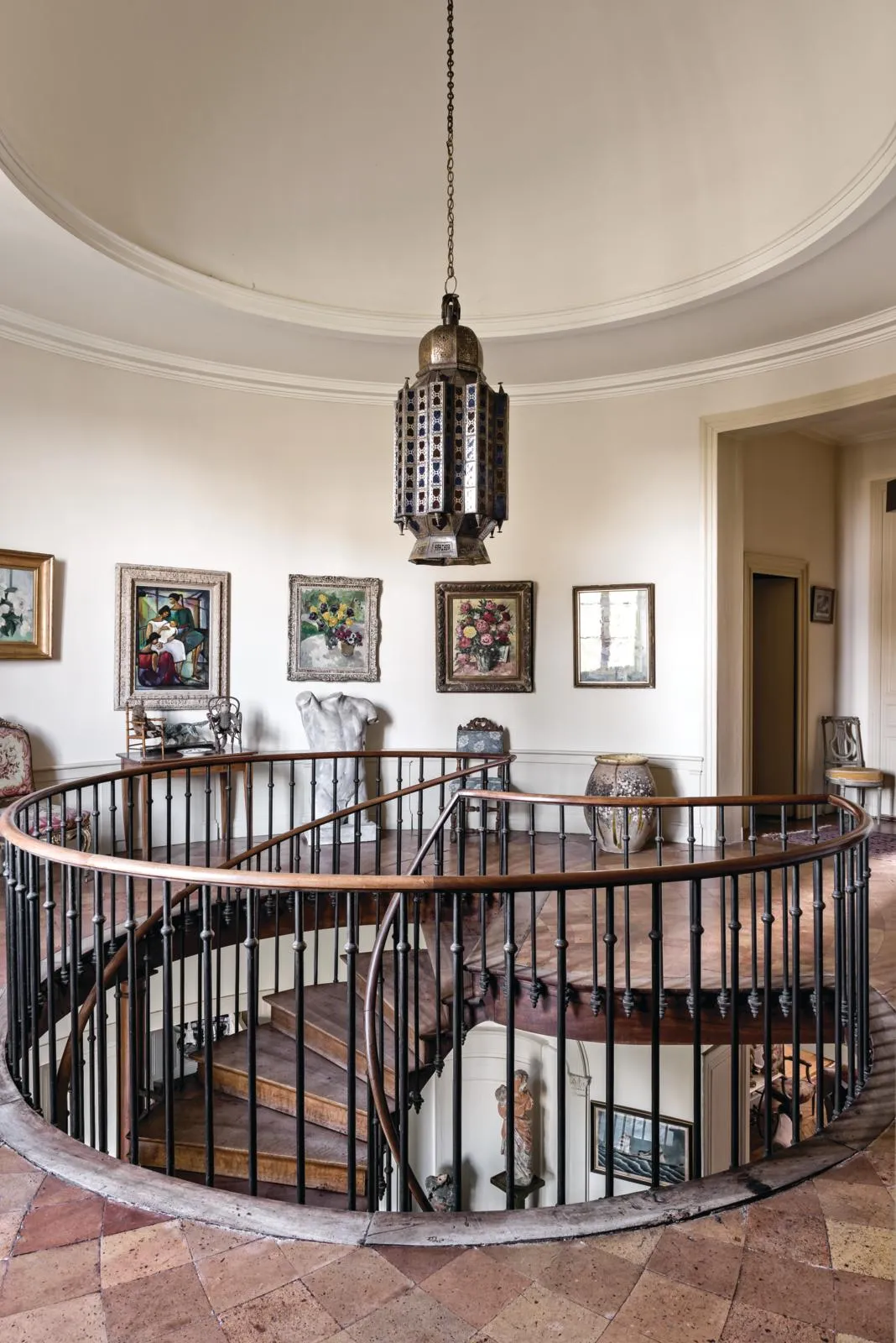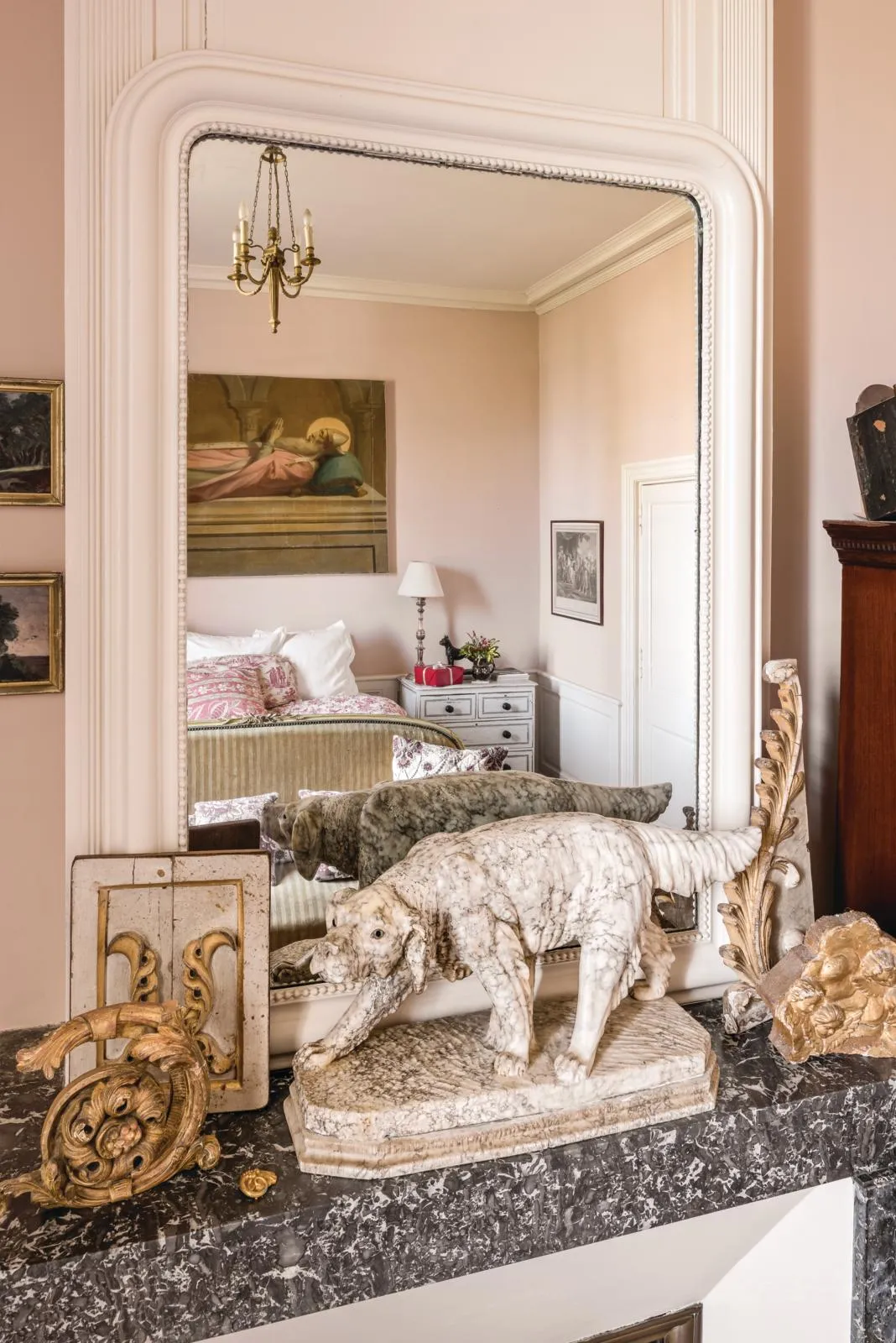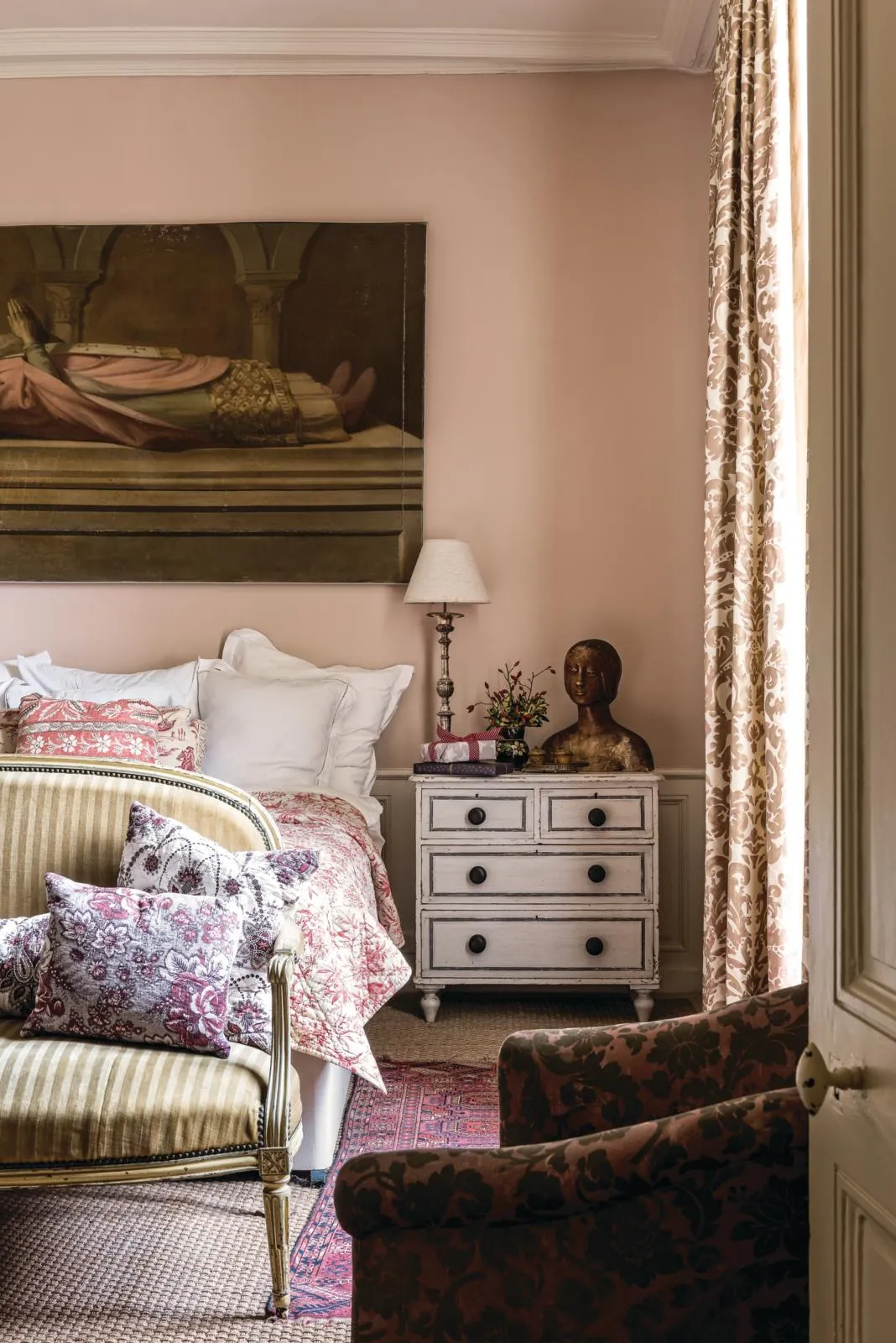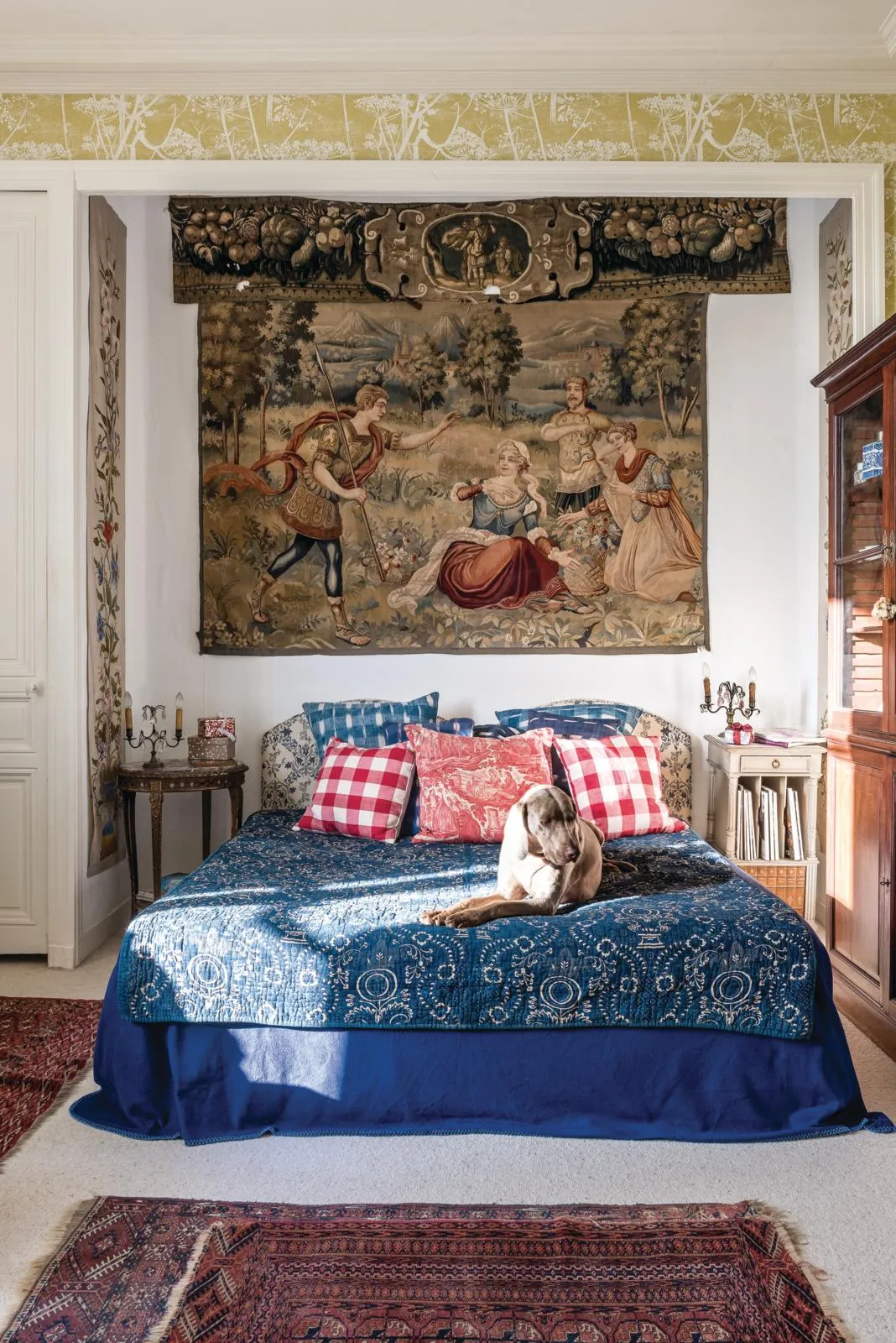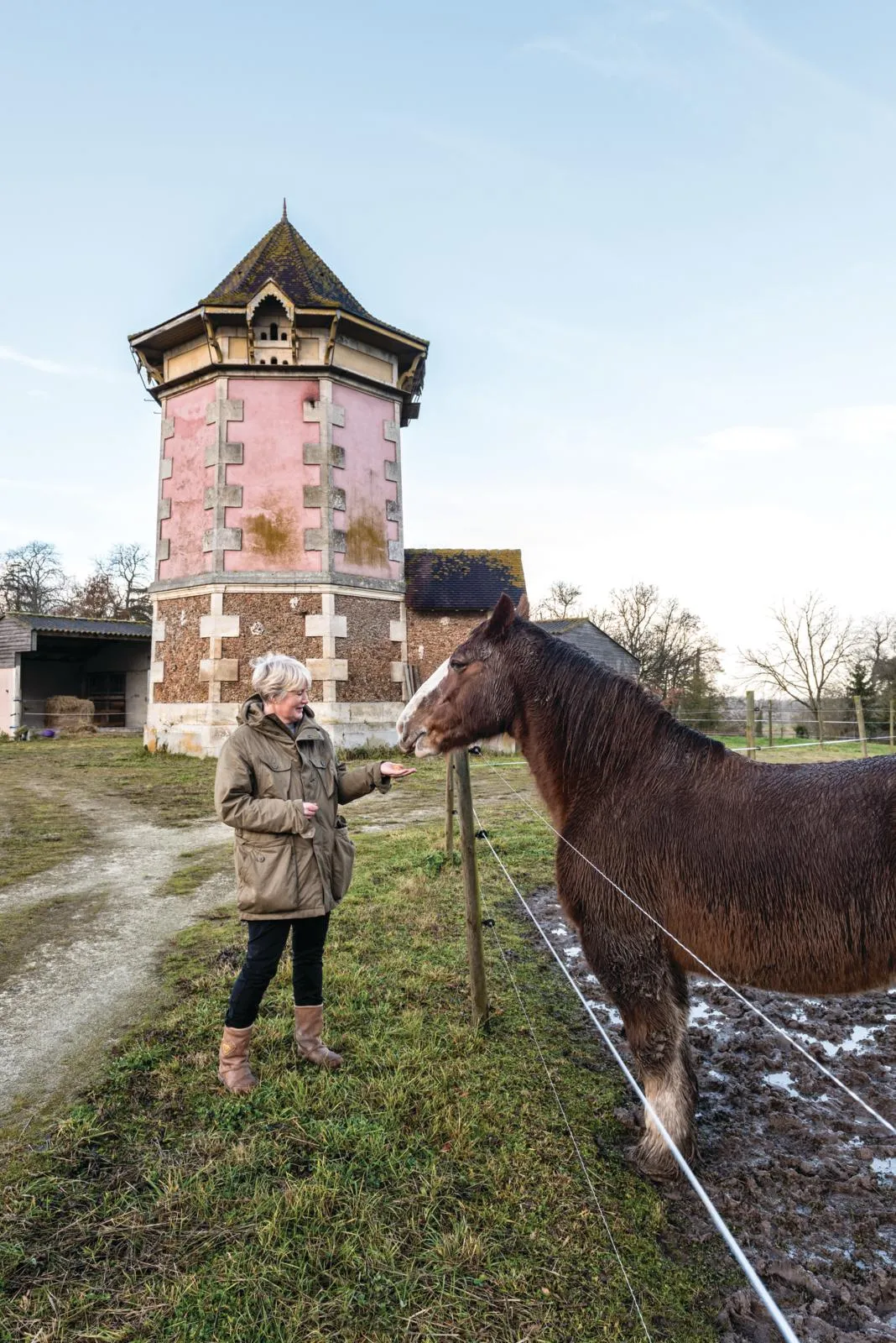Christmas is a special time for the Hasletts. Antiques dealers George and Sarah always give a big party for friends, neighbours and fellow dealers the weekend before the big day. ‘It’s always a fun, noisy evening with around 80 guests of varying ages,’ says Sarah.
Their home provides an impressive backdrop to such festivities. In the entrance hall, pine needles and cones adorn the banister and jewel-coloured tea lights lead the way upstairs. While, in the panelled dining room, the twinkle from lit antique mercury glass candlesticks is reflected in a witch’s ball suspended from the chandelier and oversized mercury glass baubles, which spill out from an ice bucket.
It’s not difficult to see what attracted George and Sarah to their home in Poitou-Charentes, where they have lived for nearly 10 years. Set in the middle of several hectares of grassy parkland, the five-bedroom chateau dates from 1824 when it was built for Jean Dupuy d’Angeac (1756-1831), a lawyer and co-founder of the renowned cognac business Otard Dupuy.
The house is thought to be the work of Paul Déménieux, a precociously talented 19-year-old, whose father was an established Cognac architect. The Palladian design is a work of exacting finesse – a spiral staircase rises gracefully from the circular entrance hall to the gallery on the floor above, while an enfilade of reception rooms extends along the length of the house on the ground floor, with French windows in the main salon opening onto a terrace with steps down to the garden.
Upstairs, there is a bedroom at each corner of the house, complete with what was a dressing room, now bathroom. A fifth bedroom leads off the main suite that can also be accessed through a doorway from the galleried landing. The architectural details are in the main intact – the panelling that lines the walls of the main reception rooms is original, as are the fireplaces and intricate tessellation of the black and terracotta floor, which radiates from a motif in the centre of the hall.
Moving to France was a logical step for the couple, who specialise in sourcing French textiles and antiques for home and garden. ‘George began dealing in French antiques over 30 years ago, and he would drive to France and back every week or so, buying in brocantes and antiques fairs,’ says Sarah.
‘As a professional chef, I was working for a family in Kent. Eventually George and I decided that it was time for us to have our own home and this part of France seemed like a good place to start. We still travel back to the UK several times a year, where we regularly take a stand at Ardingly antiques fair.’
The couple bought their first French house in 1990, refurbished it and then sold it a year or two later. ‘We did the same with five other houses. Then George heard that this house might be for sale, so we viewed it straight away. Considering its age and the fact the house hadn’t been lived in for at least 20 years, it was in remarkably sound condition. The purchase was a lengthy process but, when we moved in, we could scarcely believe that this beautiful property was at last ours.’
When it came to furnishings, Sarah and George were well placed to create a scheme that complemented the architecture. ‘We’re not purists – it’s very much a family home, but hopefully a comfortable and decorative one, too,’ says Sarah. ‘George has got to know dealers all over France who call him up if they discover something unusual they think he’ll like.’
Sarah’s passion for antique French textiles is clearly evident. ‘The craftsmanship constantly amazes us, as does the beauty of the indienne prints, inspired by the cottons and silks that came from India during the 17th century. All early decorative textiles in good condition are of interest, but particularly 18th and 19th-century pieces. The only problem as a dealer is parting with something I like, such as the 18th-century indigo resist textile in our bedroom. It’s a keeper for sure.’
